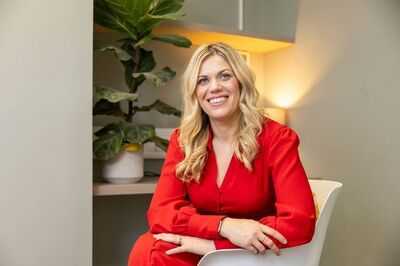
A star among the wave of Tory MPs elected in Boris Johnson's 2019 landslide has found a new mission as a champion of Britain's "lost boys" who are growing up without hope - and often without a dad. Miriam Cates impressed parliamentary colleagues with her combination of zest and courage and was spoken of as a future contender to lead the party. Now she champions the role of fathers and battles on behalf of boys who are in danger of falling through the cracks in modern Britain.
There were 550,000 lads aged between 16 and 24 who were not in education, work or training last year, according to the Centre for Social Justice, where she is now a senior fellow. She wants to build a society where masculine strengths are valued, where boys learn self-control by wrestling with their dads and playing rugby, and where children's lives are not ruined through exploitation by social media giants.
Miriam fears boys today are often failed by a state school system which delivers a "style of education that suits girls but really, really switches off a lot of boys".
"If you look at state schools they do hardly any sport," she says. "They don't do things like rugby - too risky; they don't do anything where there's a health and safety implication, and yet those are the kind of things that boys need to test themselves out and to make themselves feel good, to give them the kind of experiences which will help them grow into a man."
She contrasts this with the situation at fee-paying schools.
"You look at how independent schools operate," she says. "Huge amounts of sport, especially for boys, lots of competition, lots of opportunities to compete against your peers and against other schools, lots of team sport."
Miriam argues it is vital that boys wrestle with their dads and have the chance to play intense sports so they learn to control their anger.
"That's what rugby is for," she says. "It's having that contact, being physically aggressive but learning self-control. That's how you become a self-controlled man. All these little boys who have no dad, no one to be physical with, no wonder they become actually violent because they don't learn self-control."
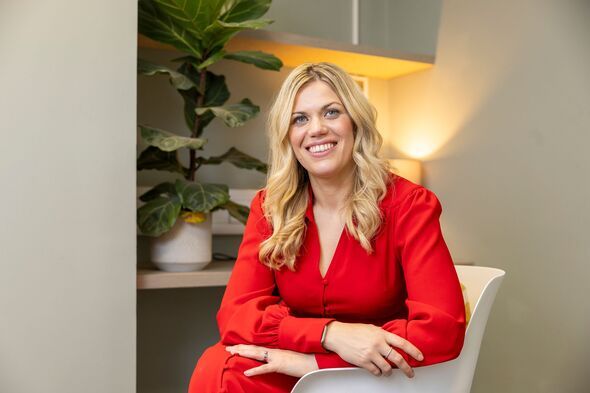
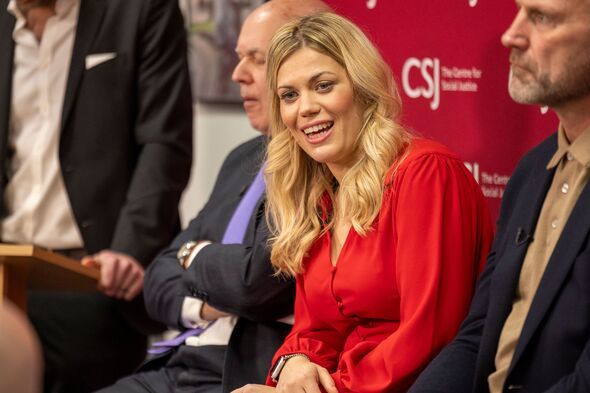
Miriam's own experiences as a pupil at a comprehensive school in Sheffield where there was a "total lack of meritocracy" convinced her she was not a Left-winger.
A key incident burns in her memory: "In the sixth form I got told to be in the maths quiz team because they needed a girl, even though there were much more capable boys, and we came second - and I know if they'd had one of the boys they would have won. I just thought it was ridiculous - 'I'm here because I'm female and there's no other reason' - and that totally turned me against the progressive values of representation and things like that."
Miriam, a GP's daughter, considered pursuing a career as a concert pianist but rejected this when she realised how much time she would have to spend practising in a room with no one to talk to. She studied genetics at Cambridge, worked as a biology and chemistry teacher in Sheffield, and won election for the South Yorkshire seat of Penistone and Stocksbridge.
In Westminster, she made the Express front page when she joined forces with then-Labour MP Rosie Duffield to defend single-sex spaces such as domestic violence refuges and she has lost none of her campaigning passion.
She does not seek to turn back the clock to an idealised version of the 1950s but wants the country to rediscover core beliefs.
"I think there are things we need to rediscover that don't seem to be self-evident anymore," she says. "Like the fact that marriage matters, like the fact that men and women are different, like the fact that fathers are important."
She fears that "boys are being brought up on porn".
It would be a "fantastic step forward", she says, if the British Board of Film Classification was given oversight of pornography on social media. "Pornography is a corrupting influence on society," she says. "There is no doubt about it."
The pervasive dangers of social media were laid bare in the hit Netflix drama, Adolescence, and Miriam says the country should "absolutely ban social media for under-16s".
She says: "When you think about what children are doing and accessing on there - and what data the big tech companies have about them - there is no way that a child can meaningfully consent to that and I think we need to see this as actually exploitation of our children by big tech. We have very strong rules that stop the advertising industry, the gambling industry, the tobacco industry, the pharmaceutical industry from exploiting our children...
"Why we think the tech industry is benevolent, I don't know."
She is concerned that lonely children spend hours looking at screens. "People used to have bigger families," she says. "Now you've got fewer siblings to play with. Kids are just becoming isolated and the phone is taking the place of sport, social activities, family time, exercise, reading."
Miriam, who has found a new audience as a GB News presenter, fears male MPs have not grasped the scale of the "crisis" facing men beyond the walls of Westminster.
"Men in Westminster have high status, they have high incomes, they tend to be married, they tend to have children," she says, warning of a lack of understanding of what life is like in parts of the country where "not many dads stick around, where generations have been jobless, and there just aren't those routes to the status which everybody in Westminster has".
Bluntly, she states: "If working class men don't have access to good jobs they don't become marriage material. It's that simple."
Although a champion of marriage, she does not view the institution with rose-coloured glasses. "What is the purpose of marriage?" she asks. "It's not a Hollywood romance.
"The civilisational purpose of marriage is to tie women and men together so that the children get the attention of both their mother and their father and are not abandoned. That is the point of marriage."
She wants changes in tax law to help parents in the expensive task of bringing up a family.
"You have more benefits if you live apart from your partner in some circumstances than if you live together," she says. "Our tax system actively discourages marriage and long-term partnership."
Her "fantastic" parents, she says, "emphasised the value of character over achievement" - and she considers time-honoured "virtues" as essential for a good life.
"What sets you up for success and contentment are the old fashioned virtues," she says. "Self-control, resilience, sense of duty - all those kinds of things are actually much more important than your GCSEs or which company you did an internship at."
Miriam's appetite to try and change Britain for the better is undimmed by her years spent in politics. Will she try and return to the Commons?
"I'm leaving my options open," she says. Outside of the party politics, she has freedom to speak her mind on the issues she feels passionate about.
"Also," she adds, "I'm really enjoying seeing more of my kids. I've three children, they're teenagers. That's really nice because [the] work of an MP never stops. You do your time in Parliament, you do your time on constituency visits, and then you've got 500 emails over the weekend. It was an amazing job and a real privilege but it's nice to have a break."
The political landscape has been transformed by the rise of Reform UK and she says there is "definitely a majority for small-c Conservative parties and we've got to find a way of turning that into a Government".
The most recent Techne poll shows Labour and Reform tied on 24% with the Conservatives on 23%.
Miriam suggests the Tories should be open to "some sort of deal" with Nigel Farage's party but says to get "to that point we've got to not knock too many chunks out of each other in the next few years".
Looking back on what led to the Tories' summer election disaster, she says the parliamentary party was "split" between liberals and conservatives.
"People mischaracterise this as infighting," she says. "It's not infighting; there is a genuine ideological split in the party that still isn't resolved and unless it is resolved - or it becomes two parties or some people leave - it's still not going to be a Conservative party. It's a massive challenge for Kemi."
She relishes her new role as a presenter on GB News.
"I'm definitely a newbie and an apprentice but it's an amazing opportunity and I'm really, really enjoying it," she says. "There are so many things that the mainstream broadcast media has just shied away from for so long so I think to have the opportunity to explore those issues is really important."
Despite being well-known for her Christian faith - she met her husband in church - she has no desire to joined the ranks of the clergy.
"I love being political and I think the worst thing a vicar can be is political," she says.
When asked what advice she has for boyfriends thinking of proposing to their girlfriends she laughs and says: "Get on with it."
And she has words of encouragement for prospective husbands: "If you get married you are many times more likely to stay together than if you don't get married."
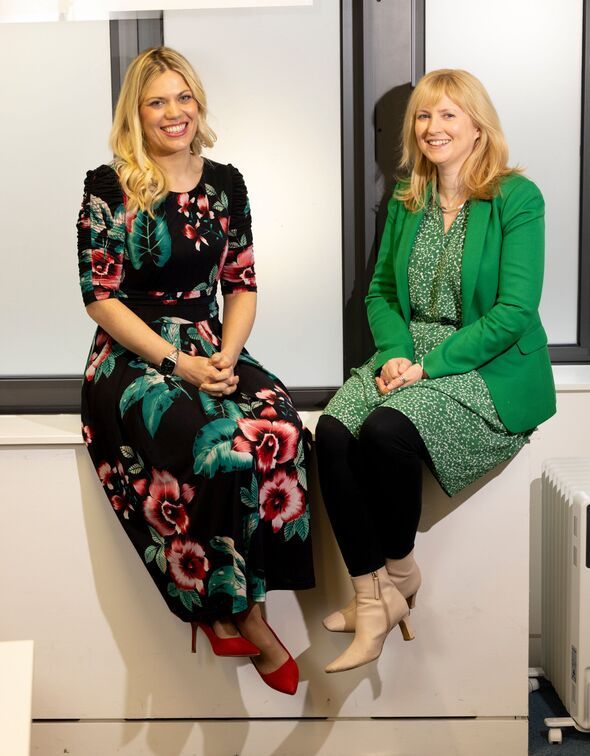
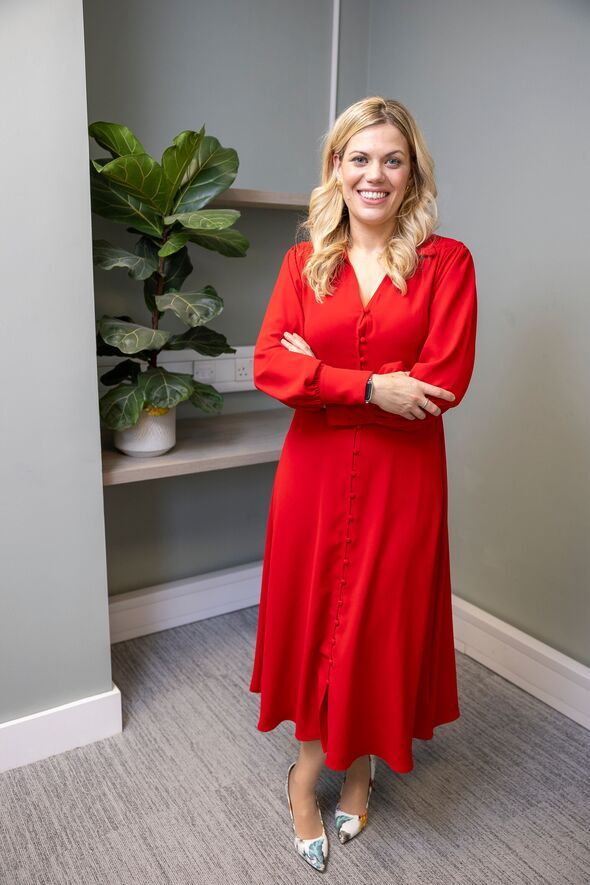
Miriam also has a clear message for Britain's dads.
"You're great," she says. "You're needed.
"You're not disposable and you are different to mums and have a different role. Of course mums are unbelievably important, nobody is saying otherwise.
"But dads are different - they have a different role and they are particularly important for boys in being a role model of what it means to be a man, what it means to be a good man, what it means to treat women well, what it means to be strong and courageous and all those other masculine virtues.
"Stick around. You're really needed and you're really important."